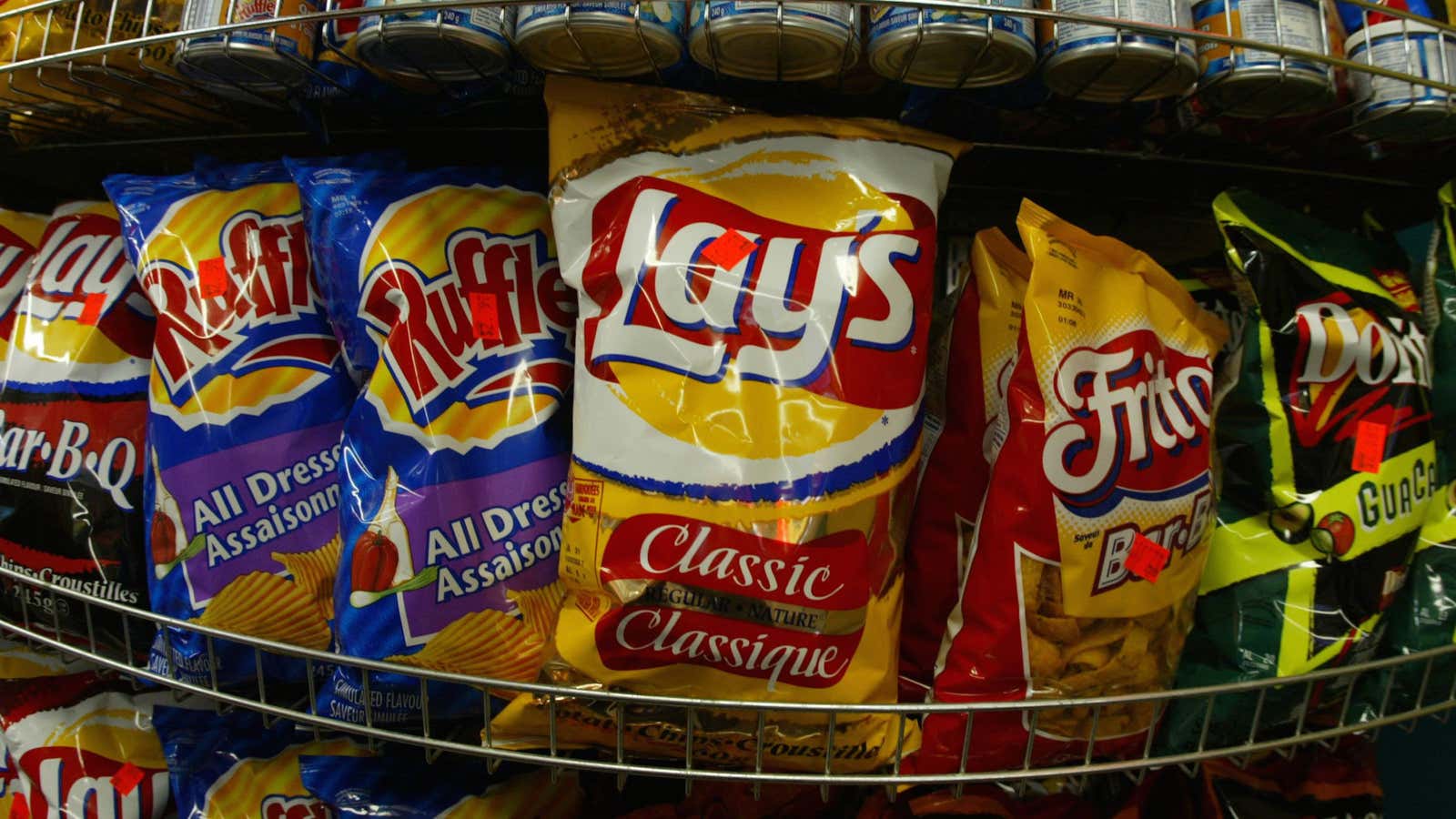Walk down the aisles of your nearest grocery store, and you’ll experience a colorful kaleidoscope of the modern food system—featuring packaged goods from breakfast cereals to potato chips, cookies, and sausages. These foods are tasty and omnipresent, and they could be killing us.
New research published this week (Feb. 14) in the British Medical Journal draws a possible link between highly-processed foods and certain cancers. A team of researchers based in France and Brazil found that diets higher in ultra-processed foods led to a 12% greater risk of developing cancer overall, and an 11% increase in risk of developing breast cancer, specifically. Some of these processed foods included dehydrated soups, processed meats, biscuits, and sauces—all loaded with sodium for its preservative properties.
The research was carried out by following a healthy group of 104,980 French adults—28% of them men, 78% of them women—with an average age of 43. Each person was tasked with responding to two online dietary questionnaires that were designed to record their intake of around 3,300 different types of food items. The researchers grouped the foods according to degree of processing, then identified over the course of five years which people developed cancer.
Making sense of how the modern food system affects health care trends can be a tricky business, since it’s unethical for scientists put humans through dietary experimentation. But through the years, researchers have linked sugar to increased risk of cancer and heart disease, and other studies have put red and processed meats under a similar spotlight. The new study builds on this growing body of science, which suggests giant food manufacturers may have played an outsized role in contributing to some of today’s most pernicious public health problems.
“These results should be confirmed by other large scale, population based observational studies in different populations and settings,” the researchers write. “Rapidly increasing consumption of ultra-processed foods may drive an increasing burden of cancer and other non-communicable diseases.”
For that reason, the researchers say that policymakers need to take action. Among their suggestions: taxing unhealthy foods, and set stricter rules about how food companies can market those products to the public.
